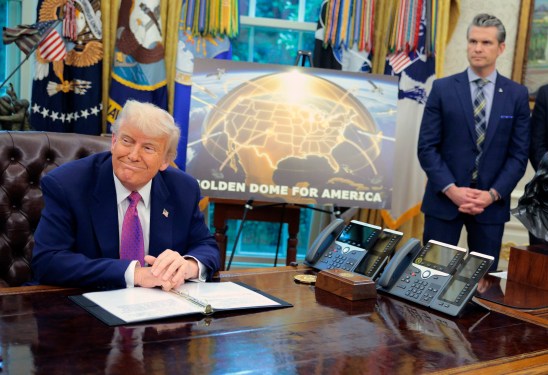Golden Dome, the Trump administration’s initiative to develop a next-generation missile defense system, has startups and established defense contractors competing for a share of a $151 billion multi-year contract. While the competition appears to pit emerging tech firms against industry giants, the reality is more nuanced. Startups face significant barriers, not due to their technology but because of the complex, costly bureaucratic process required to meet security and compliance standards.
The Pentagon’s Missile Defense Agency recently released a draft solicitation for the 10-year contract, known as SHIELD (Scalable Homeland Enterprise Layered Defense). This umbrella program will fund the Golden Dome system, which aims to protect the continental U.S. from missile threats using a combination of space-based interceptors, ground-based radars, and sea-based defense systems.
Qualifying for the $151 billion contract does not guarantee funding. Instead, companies will compete for individual task orders. The final request for proposals is expected in the fourth quarter of this year, but lobbying efforts are already underway.
For startups, the path to participation likely involves partnering with major defense contractors like Northrop Grumman or Lockheed Martin. Many early-stage companies lack the necessary security clearances, personnel, or IT infrastructure to handle classified government work. Venture-backed firms such as SpaceX and Anduril, which operate at a larger scale, may compete directly with traditional defense players like RTX, Boeing, and L3 Harris.
Bryce Dabbs, CEO of Approach Venture, estimates that only 5% to 10% of the contract value will go to non-traditional vendors, primarily through subcontracting arrangements. He notes that while Golden Dome is frequently cited in startup pitches, many investors may not fully grasp the complexities of government procurement.
Critics argue that the contract structure, governed by the Federal Acquisition Regulation (FAR) and the Competition in Contracting Act (CICA), inherently disadvantages newcomers. William Greenwalt, a former Pentagon official, suggests that an Other Transaction Authority (OTA) approach would better foster innovation by allowing more flexibility in working with non-traditional vendors.
General Michael Guetlein, appointed by Trump to lead the initiative, faces an aggressive timeline to finalize the program’s architecture within three years. This tight schedule favors existing, deployable technologies over those still in development.
Golden Dome represents a high-stakes effort to enhance U.S. missile defense, but its procurement process may limit the role of innovative startups unless they can secure partnerships with established defense giants.

